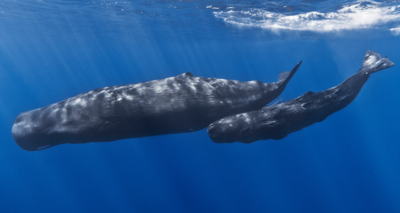ARTICLE AD BOX

Sperm Whale (Photo: Wikimedia Commons)
Ambergris, the fabled “floating gold”, might sound like something straight out of a tall tale, yet its real-life story is stranger and more interesting than fiction. Sometimes called whale vomit, modern science now considers ambergris closer to a gallstone or perhaps whale poop, but the truth is actually somewhere between the lines.Although only found in less than 5% of sperm whale carcasses and washed ashore only sporadically, ambergris remains highly prized for being rare and possessing a special chemical ability to make fragrances linger. Even today, it’s sought after for making the finest perfumes, making ambergris one of nature’s most curious and coveted treasures.
Fishermen who became overnight sensations for finding Whale poop!
In 2016, three ordinary fishermen from Oman became overnight sensations when they discovered approximately 80 kilograms of ambergris while fishing off the coast of Quriyat.
The “floating gold,” as they had unwittingly found, was expected to fetch nearly US $2.5 million, as reported by the Gulf News. This exceptional treasure in disguise captured headlines globally.The ambergris found by the fishermen caught the attention of buyers, with offers ranging from OMR 7,800 to 13,500 per kilogram. Altogether, the lump was valued at over OMR 1 million or US $2.8 to $3 million, according to The New Arab.
One of the fishermen, Khalid Al-Sinani, shared, “I was told earlier that ambergris has an icky smell, but after a couple of days it imparts a pleasant scent,” clearly amazed by both the smell and the sudden fortune.
What is Ambergris?
Ambergris originates in the intestines of sperm whales. Scientists have discovered squid beaks embedded within ambergris, leading them to believe that the substance forms as a protective coating in the whale’s gut.
Once expelled, likely as a form of waste, it drifts at sea for years, undergoing a change from foul-smelling wax into a hardened, pleasantly fragrant material.
What makes this whale poop so expensive?
First, ambergris is produced only by sperm whales and washed ashore rarely. Second, after years at sea, the compound develops a smooth, musky, earthy, sweet, or “indescribable” scent that’s highly prized by luxury perfumers. It also acts as a fixative, helping fragrances bind to skin and last longer.

Ambergheris (Photo: Wikimedia commons)
Historically, ambergris has been used for much more than perfume. Its allure goes back centuries, as the medieval Europeans used it in pomanders during the plague to lessen the foul air, and it even appears in the earliest known European ice‑cream recipe from the 1660s, which suggests flavoring “icy cream” with ambergris, according to an article by the British Museum.
Legal restrictions and laws for protection also add to its value
Legal constraints loom large for the substance, as in countries like the United States, ambergris is classified under endangered-species regulations, making its trade and possession illegal despite its being a natural excretion.



.png)
.png)
.png)
















 3 days ago
4
3 days ago
4







 English (US) ·
English (US) ·